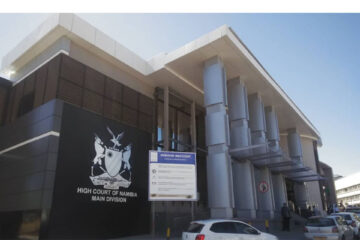The regulatory pursuit of informal vendors, traders, and service providers will not formalize the economy but destroy it. The informal sector is as valuable to the Namibian economy as any other commercial sector.
Rather than criminalizing the informal economy, why not help it earn more income? For now, the state earns revenues in the informal sector from VAT on sales of raw materials or bulk products. Let them form their own chamber of commerce and dialogue with decision-makers about the services they need and how to pay for them.
Please read the February 25, 2011 article, Support ‘meme kapanas’. In that piece, David Nuyoma (now the MD of GIPF) offered eloquent and insightful support to the informal sector. His points are even more valid now. In our pandemic-whipped national economy, what can the government do to help those in the informal economy earn more?
Namibia has a 36 percent (higher for youth) unemployment rate. There are few new jobs for the under-skilled in Namibia right now. These are the people staffing the informal economy. They get up at horrific hours and walk long distances every day. They have to fight off thieves to be in the right spot at the right time to earn their daily bread. It is a hard life. Why make it harder?
Passing laws that cannot be enforced weakens the credibility of governmental authority. Lawmakers must think hard about imposing odious rules on people who are desperate and barely holding on. Instead, diffuse the situation. Check for health/sanitation concerns; stop giving them a hard time and get out of their way.
Informal vendors cannot easily transition to the formal sector. The government blocks this with over-regulation, hassles, and insensitivity.
Job applications for formal employment are barriers. They require people with years of experience, ID, letters of reference, certificates, and other administrative barriers. Many people in the informal sector don’t have these things.
Tendering for a contract to get a small job requires tax clearances, social security good standings, business bank accounts, affirmative action commission letters, and other red tape. It takes money for taxis just to run around and get to all of things ready. It takes time away from an informal business stand or street kiosk to stand in the long lines in offices. And of course, it takes excellent English reading, writing and speaking skills to fill out the mountains of government forms needed. This is a huge barrier.
There are tens of thousands of school leavers and people who did not pass the grade 10 and 12 tests from before independence up until now. Where did the government think they have gone? By necessity, many go into the informal sector to try to make a go of life.
Some time ago, former Finance Minister Calle Schlettwein bravely supported taxation schemes for the informal sector. Technically, it is the right thing for a finance minister to do; practically, it will never happen.
There is no political will by lawmakers, top officials, and law enforcement officers, to tax people who are trading informally. It is a particular no-go area in an election year.
MPs, city counsellors, or police officers have relatives or close friends who earn money off-the-grid.
Many people with gainful employment have quiet under-the-table second jobs. As salaries are being reduced these days, this second income stream might help people keep their kids in school, make bond payments and buy food.
There are many women braiding hair or doing nails at home and making/repairing clothes. Others fix shoes, cell phones, or paint or do household repairs. Some prepare food for sale to their community. Many sell fat cakes, meat, and oshikundu on the streets. Others sell sweets and cigarettes at makeshift kiosks in the front of their homes or by the side of the road. The list of services and products provided is endless. Stop the need for a certificate of fitness or other regulatory hurdles. Let them get on with it.
There are no government safety nets to consistently assist people who need their daily bread. The N$750 EIG was great, but it was a once-off. What about tomorrow? Only the informal sector can answer that question for some.
How many of our college-educated students have degrees because of money earned from informal businesses? Where else would that money come from?
Shebeens are here to stay. Let the moralizers about alcohol calm down. We need a work-around solution for the downside with inputs from all affected. The people raising their families near these bars are living in torment. This cannot continue. Viable solutions are not easy to find, but we’ll never get there if we don’t start somewhere.
The informal economy in Namibia is a part of the nation’s economic strength and its recovery, whether people like it or not. Without it, the bad situation faced now would be far worse.



